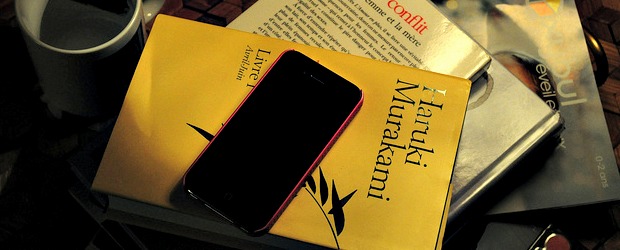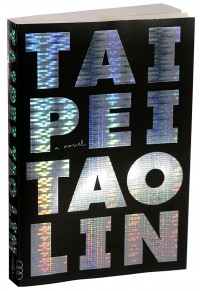You have no items in your cart. Want to get some nice things?
Go shopping
“Where do novels come from?” Or “Who invented the novel?” Or “What was the first novel?” Or even, “Why did Shakespeare write plays, why didn’t he write novels?” Why does one literary form come to dominate an age rather than another? What are the circumstances that bring a particular literary form into being and how might new technologies – as well as the discourse that surrounds them – shape the novels that have yet to be written? How should we, as writers and readers of literature, respond to the immense challenge presented by digital technology in general and social media in particular? [private]
We live in accelerated world where everybody and everything is continuously available, all the time and largely independent of wherever we might actually ‘be.’ New forms of immediate and intensely inter-connected media mobilise language in conjunction with images and emotive signifiers in a way that seems closer to hieroglyphics (and often almost indistinguishable from advertising) than, say, the dense prose of a Dickens novel. Furthermore, the accessibility of these media means everyone can now ‘be’ (or present themselves ‘as’) a novelist, poet, artist, photographer, film maker, musician or fashion model. We are all – to paraphrase Tom McCarthy – transmitters and receivers, exchanging ideas and information whilst continually augmenting and broadcasting new or updated versions of ourselves. I could tweet to my followers that I am “#writing an article for @LitroMagazine” as I write it. And if I don’t reveal it, the GPS on my phone will show my ‘friends’ and ‘followers’ exactly where I am, as I write the piece. When I check my Facebook, Twitter or Instagram feeds I’m bombarded with data, from up-to-the-moment information from the crisis in Ukraine to a picture of someone’s breakfast to countless trivial and continuous revelations of mood, event, opinion, consumption or action. I read that a prominent YA author is “moving house” while below that a poet announces that his wife’s test results are bad, she has cancer and is being rushed to hospital for treatment. Drama is all around. These ‘updates’ are followed by dozens of comments – words of advice and comfort, arguments and exchanges of opinion, links to other sources – it’s endless and constant. My day has hardly started and already I’m overwhelmed by these micro-narratives of the everyday.
As a novelist, I often wonder how I should try and respond to this new reality. Might the novel – as a form – be too slow and considered to maintain any purchase on our slippery, shifting digital reality? Or are there ways for the novel to engage and absorb these media, making full use of their poetic and dramatic resources while continuing to comment on and reflect our world in a more profound and considered manner?
Novels have not always been with us. Novels are not magical, ahistorical entities that somehow appeared out of thin air. They are the result of a particular set of socio-historical, technological and economic circumstances. Without the invention of printing presses, without the Enlightenment and the industrial revolution, without the emergence of a literate middle class with leisure time, education and a disposable income, the novel would not exist. We also know that the novel is particularly well suited to representing certain types of life as well as certain types of conflict. Ever since Richardson, Defoe and Austen, the novel has tended to focus on the ability of its protagonist(s) to negotiate social rituals (typically class conflicts and marriage) and gain (or lose) private property. Themes of ownership and property have their extra-textual correlative in the aura of originality and authority that surrounds a novel. As a result, the novel is usually seen as the unique product of a single, private individual, an expression of the particular style and manner of that author. As Foucault observed: “We now ask of each poetic or fictional text: from where does it come, who wrote it, when, under what circumstances, or beginning with what design?” Unlike the ancient poets and dramatists, novelists tend not invoke the muse. Novels are not a ‘divinely inspired’ form whose subject matter is summoned from beyond, but one that that comes within and around. The novel is embedded in social conflict; it emerges from and returns to the material world of the author. The circumstances surrounding its production also mean that, unlike earlier literary forms, the novel also tends to be consumed privately, a solitary affair, rather than collectively and publically like theatre or cinema.
Novels have also proven to be hugely adaptable, rising admirably to the challenges of the twentieth century. Modernists such as Fitzgerald and Joyce knew how to use the new communications technologies and mass media to drive their plots and transform the ‘realism’ of the nineteenth century novel into something altogether more dynamic: think of the telephone calls and car accidents in The Great Gatsby or the way Ulysses explodes the ‘everyday’ to become an exhaustive encyclopaedia of almost every possible form of discourse, literary, technical or other. But there is no guarantee the novel will survive the complexities of the twenty-first. Indeed, the novel might end up as redundant and anachronistic as the Horatian ode or the Spenserian sonnet, a static, dead form or – as Philip Roth has warned – an inaccessible minority interest to be consumed by a select few (just like Classical poetry today), entirely ignored by an uncomprehending wider society.
The technological innovations of the nineteenth and twentieth century transformed the structure of society, the nature of our social life, our individual consciousness and our relationship with time and space. Today, the ever-expanding universe of inter-connected new media we inhabit has accelerated these pressures, continuously challenging the more stable and intelligible sense of reality on which the novel traditionally depends. The essence of modernity is speed, but novels are a slow form, they take a very long time to write and can take a long time to read. In a world of accelerated consumption, the novel (rather like good food) remains definitively slow.
In the face of these challenges (although distractions might seem a better word), does the writing of ‘serious literature’ become impossible? And even if we still have ‘writers’ writing ‘literature,’ does anyone still care? Visual images have long since trumped the public imagination. As Lars Iyer comments in his hilarious and influential ‘anti-manifesto,’ ‘Nude in your hot tub, facing the abyss’: “Now you sit at your desk, dreaming of Literature, skimming the Wikipedia page about the ‘Novel’ as you snack on salty treats and watch cat and dog videos on your phone. You post to your blog and you tweet the most profound things you can think to tweet, you labour over a comment about a trending topic, trying to make it meaningful.”
We seem lost in distraction, our capacity for serious thought (and serious art) swamped by a deluge of the immediate. Writing more than twenty years earlier, the French philosopher Giles Deleuze was even more forthright about what he saw as the negative impact of technology on human subjectivity: “This technical world, the larger its power is, the more it seems to drain mankind, like a chicken, of any interior life and to reduce it to total exteriority.” If the novel dramatizes the private, interior consciousness of its characters and represent the complexities of social conflict, how then should writers respond to innovations that have atomised and decentred society, undermining or transforming almost beyond recognition many of the distinctions (such as private versus public, presence versus absence, duty versus desire) on which the novel traditionally depends? For example, where once we had the diary – private, secret, interior, isolated and dangerous – we now have the blog – public, open, external, linked and safe. The very openness of a blog negates its capacity for danger. A diary, being hidden, remains dangerous, because it contains secrets, but the blog? The blog is nothing but a confession, a disclosure, a public-working out, a becoming visible that neuters – through exposure – whatever threat lay behind that which was withheld, isolated, deliberately kept from circulation. It is a paradoxical situation: social media means our society is now more connected, with more opportunities for connection, communication and exposure than ever before. But at the same time we cannot deny that with this process has come a sort of flattening out or a draining of what was once understood as depth, interiority or ‘resistance’. The alienated consciousness of the Modernist novel sought through existential crisis and the transgression of bourgeois norms to determine the underlying structure and meaning of society. But in our postmodern age this presence has been displaced, has become something else. But what, exactly?
In many ways, contemporary novelists – or, perhaps, the wider publishing industry – are failing to engage with these challenges. The popularity of what is called ‘historical fiction’ reflects our culture’s ambivalence about the novel’s ability to represent contemporary society (or even our ambivalence about ‘contemporary society’ itself). Of course, the ‘historical novel’ is embedded in these contradictions (reflecting the fact that pastiche, as Frederic Jameson pointed out, has long been our dominant cultural style) while harking back to a time before mobile phones, (or phones at all) the internet and social media, when communication took place slowly, in one dimension and in chronological order. But it’s clear that we can’t just write historical novels forever (and, indeed, one wonders what the scholars of the future will make of this meme – is the popularity of the ‘historical novel’ not just another symptom of our pessimism towards the future and our inability to envisage positive models of modernity?) What does all this mean for the novelist who still wishes to write ‘to the moment’ and stop the novel from becoming a vessel for nostalgia or escapism?
In his essay ‘The End of the End of Everything: Fiction’s Fretful Futures’ Sam Byers makes a bold case for the novel’s ability to absorb these influences, arguing “the novel, with its access, not only to our emotions but also our meta-emotions, the things we feel about how we feel, is the perfect medium for this conflicted age.” He argues that the novel can absorb almost any form of discourse, incorporating texts and tweets and breaking 24 hour news to great dramatic effect. Indeed, I would argue that although the order, structure and appearance of our reality have undergone a radical transformation, the essence of what motivates us has not changed so much: in the eighteenth and nineteenth century novel, for example, the arrival of a letter or a message was always an important event – and there seems no reason why, in the novels of today, an e-mail or status update should not have the same impact on character and narrative.
If nothing else, the popularity of social media, the endless posting, sharing and retweeting of status updates, events and trends shows how our passion for diverse narratives has not diminished. We still crave stories to make life sensible for us, whether we consume these stories via novels or other media. As a result, the contemporary novelist faces several challenges. First, we should not try to hide from the ubiquity of social media or confine ourselves to writing about the past but rather embrace the extent to which social media acts as both an intensifier of drama and as a new linguistic resource. Internet dating, Grinder and Tinder might have replaced the ‘marriage plot’ of the eighteenth and nineteenth century novel, but our desire for sex and love has not changed (even if we might be facing the disconcertingly dystopian possibility that ‘chatting someone up you met at a bar or party’ has been outmoded by new applications, just as first asking the father for permission to marry his daughter is now a redundant code of conduct). Writers need to recognise that these technologies add another dimension to social interaction. If, for example, courtship used to proceed through letters and choreographed visits, it now takes place in both reality and the hyper-real, with ‘adding’ and ‘following’ and checking out the other’s virtual persona now crucial stages, the equivalent of couples once being allowed to exchange confidences or go on walks together unchaperoned.
 In Tao Lin’s novel Taipei (2013) the narrator, Paul, first encounters his future wife Erin, online: “Paul first learned of Erin twenty months ago, in January 2009, when she commented on his blog and he clicked her profile and read her pensive, melancholy, amusing accounts on her blog, of her vague relationships and part-time book store job and nights drinking beer while looking at the internet and classes at the University of Baltimore… Paul found and read – and reread with high levels of interest – three long stories, each focused on an unrequited or failed relationship, that she had published in online magazines.” Tao Lin’s novel shows how the virtual has overtaken the real: the characters first ‘meet’ and pursue the other online; they study one another’s online personas and then anxiously try to assess the extent to which the persona ‘matches’ the reality, a behaviour which is both totally new (in that at no time in human history have we been able to access so much information about each other) and, due to its salience, totally familiar. Tao Lin makes the fact that contemporary relationships are heavily mediated in this way a central part of his novel. Paul and Erin even email one another when in the same room as they find it a less challenging form of communication than actual, face-to-face dialogue – or they attend the cinema with friends but “would sit separately during the movie and communicate only through tweets, in service of making the experience ‘more fun and interesting.’”
In Tao Lin’s novel Taipei (2013) the narrator, Paul, first encounters his future wife Erin, online: “Paul first learned of Erin twenty months ago, in January 2009, when she commented on his blog and he clicked her profile and read her pensive, melancholy, amusing accounts on her blog, of her vague relationships and part-time book store job and nights drinking beer while looking at the internet and classes at the University of Baltimore… Paul found and read – and reread with high levels of interest – three long stories, each focused on an unrequited or failed relationship, that she had published in online magazines.” Tao Lin’s novel shows how the virtual has overtaken the real: the characters first ‘meet’ and pursue the other online; they study one another’s online personas and then anxiously try to assess the extent to which the persona ‘matches’ the reality, a behaviour which is both totally new (in that at no time in human history have we been able to access so much information about each other) and, due to its salience, totally familiar. Tao Lin makes the fact that contemporary relationships are heavily mediated in this way a central part of his novel. Paul and Erin even email one another when in the same room as they find it a less challenging form of communication than actual, face-to-face dialogue – or they attend the cinema with friends but “would sit separately during the movie and communicate only through tweets, in service of making the experience ‘more fun and interesting.’”
The novel has its extra-textual echo with @tao_lin whose twitter persona is at times hard to distinguishable from his fictional narrator ‘Paul.’ In Taipei Paul embarks on a drugs fuelled book tour, “texting people and asking on Facebook if anyone within fifty miles wanted to sell them drugs” just as Tao Lin spent much of his recent UK book tour tweeting requests for people to bring him drugs or money. As a result, Taipei seems less like a unique, singular artefact and more like a supplement or an appendage to a larger social media presence. But at the same time, we cannot dismiss Taipei as just an accessory for some sort of hipster celebrity. Nor is Taipei an ‘anti-novel’ subverting or overturning all the expectations and conventions of the form. Peel away the drugs and hipster trappings and Taipei is actually quite traditional and sentimental, following the attempts of an alienated young man to integrate himself into a society as he struggles to balance parental expectations with the demands of his social milieu. The novel is very much a modern ‘love story’ tracing – as it does – the arc of his relationship (while avoiding traditional moments of crisis or change) with Erin from Facebook friends through ‘ironic’ Vegas marriage and eventual disenchantment. Tao Lin’s ability to engage with social media as part of the reality of ‘lived experience’ is undercut with more critical reflections – such as the narrator’s feeling that “technology had begun… to mostly indicate the inevitability and vicinity of nothingness” – and these reflections prevent the text from aligning itself too closely with these other forms of media. The fact that Paul continually thinks of himself using metaphors borrowed from technology – “the hardware” of his brain, his eyes compared to a screen, his memory to a zip file – implicitly critiques the impact of this technology on human subjectivity.
As a result, Taipei retains a measure of critical distance even if it also stands as an example of just how far our subjectivity has been sculpted by these media-technologies. It offers one example of how the novel might sustain and rejuvenate itself in the face of social media, showing how the novel can absorb these forms and practices, rendering them – through narration, dramatization, distance and reflection – with the clarity we need to see them afresh. [/private]

About James Miller
James Miller is the author of the acclaimed novels LOST BOYS (Little, Brown 2008) and SUNSHINE STATE (Little, Brown 2010) as well as numerous short stories. He is currently senior lecturer in English literature and Creative Writing at Kingston.



